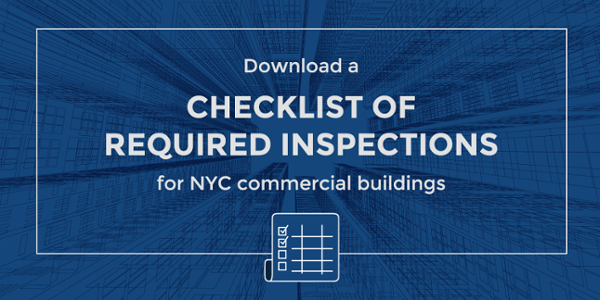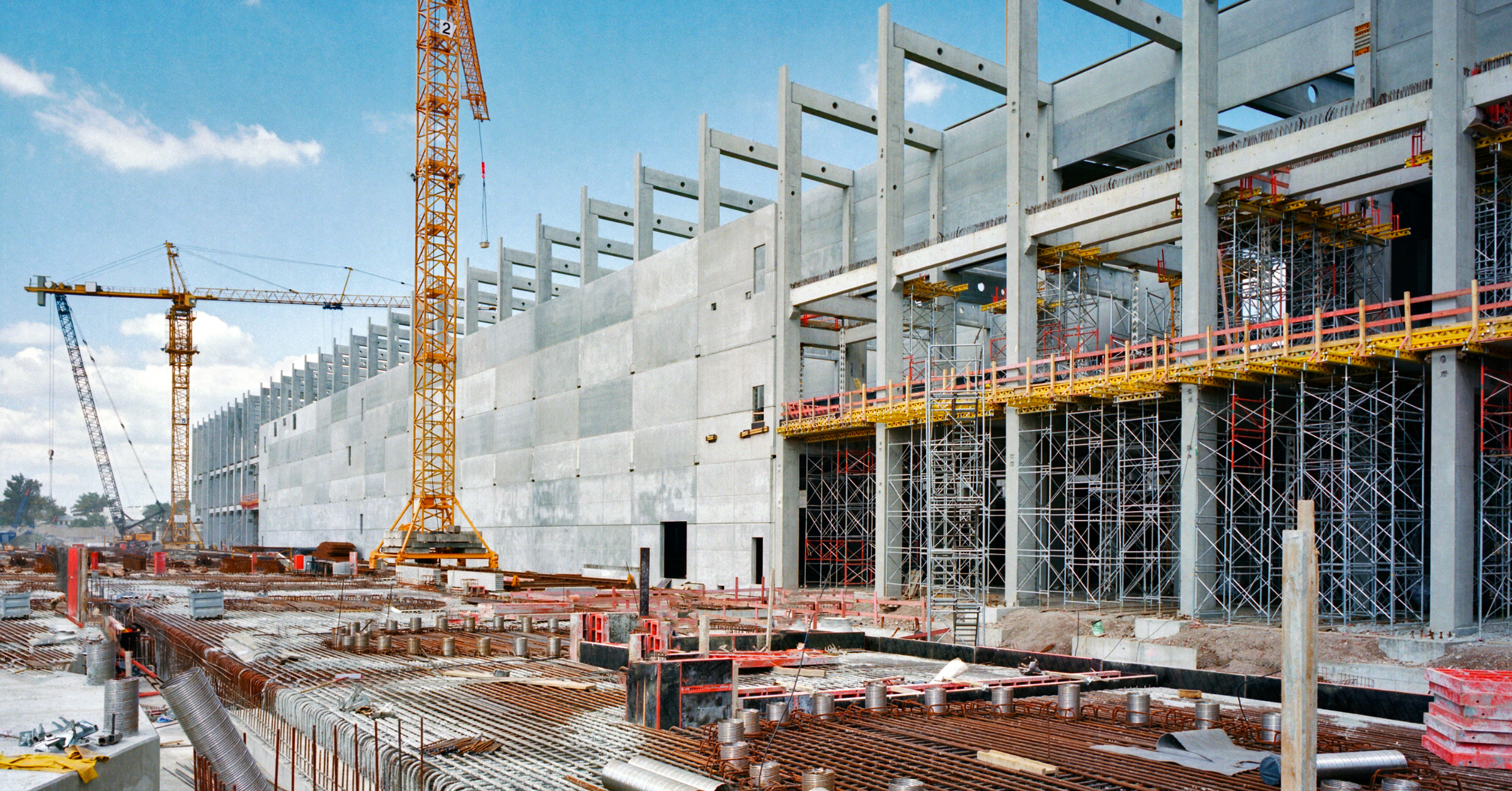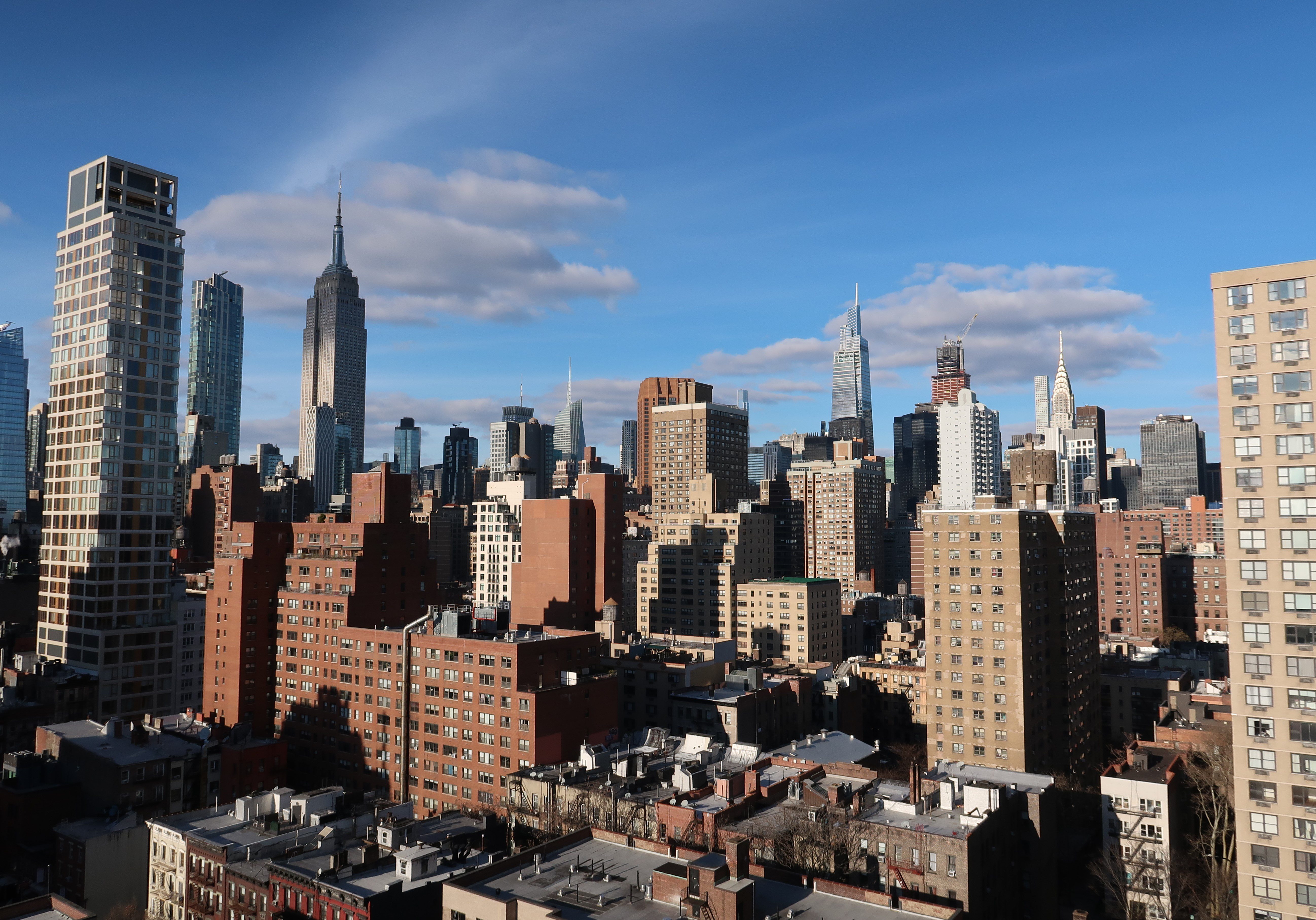The NYC Department of Buildings (DOB) strives to ensure the safe and lawful use of one million buildings and properties in New York City. The agency oversees and enforces the NYC Building Code and NYC Zoning Resolution to make sure all New Yorkers are safe.
Professional engineers, registered architects, property owners and builders are required to design, erect and maintain properties in safe conditions under NYC DOB regulations, which are meant to foster integrity in the local construction and real estate industries. Individuals or organizations that fail to comply with these ordinances face violations, which can lead to monetary penalties and, in some cases, criminal charges.
Maintenance of buildings requires periodic inspections to ensure safety. Commercial buildings in the city are subject to numerous different building inspections, some of the most common include:
DOB inspections
- Benchmark: Properties are subject to annual Energy Code inspections. While the NYC DOB mandates these reviews within its compliance requirements, the agency farms out the inspections to independent agencies.
- Boilers: Boilers are subject to annual inspections. Owners must submit the resulting reports to the NYC DOB.
- Cooling towers and legionnaires: Cooling towers are subject to annual inspections. The building owner must also perform weekly and monthly inspections leading up to annual inspections.
- Elevators: Elevators and escalators are subject to annual and quinquennial inspections — these are called Category 1 (CAT1) and Category 5 (CAT5) inspections, respectively. Elevator contractors perform the inspections and submit the results to the NYC DOB.
- Façade: Commercial owners/managers with buildings higher than six stories must have exterior walls and appurtenances inspected every five years and file technical facade reports via DOB NOW, the agency's electronic filing system.
- Permits: Owners must maintain valid Department of Buildings permits pertaining to various building construction elements including foundations, excavations, general construction operations, sprinklers and standpipes, sidewalk sheds, places of assembly (POS), fences, etc.
DOB NOW: Inspections provides online scheduling for virtually all inspections, making it easier to schedule inspection appointments, offer more precise inspection scheduling, and improve inspection tracking and notifications.
New York Fire Department (FDNY) inspections
- Equipment use (EUP) and fuel storage: While the NYC DOB mandates EUP and fuel storage permit inspections, it is the FDNY that actually enforces them.
- Fire suppression: Ansul systems are subject to annual inspections, along with semiannual tests, which fall under the purview of the applicable suppression companies.
- Place of Assembly Certificate of Operations: After initial issuance, the FDNY takes over the annual re-inspection of approved Place of Assembly spaces to renew the operators' Certificate of Operation.
- Sprinkler (SP) and fire alarm (FA) systems: Depending on the occupancy of the building, these systems could be subject to specific monthly, quarterly and annual inspections, testing and service requirements. These routine inspections must be performed by Licensed professionals or Certificate of Fitness holders, and detailed records must be readily available should an FDNY inspector visit the site.
Standpipe, SP and FA systems
Keeping these systems in good working order is essential to protect life and property. The National Fire Protection Association's Fire Code and Rules provide minimum requirements for the periodic inspection, testing and maintenance of such systems, as well as for the supervision of individuals responsible for this work.
NFPA Standard 25 establishes inspection requirements for SP and standpipe systems, while NFPA Standard 72 governs those related to FA systems. Owners are encouraged to review these standards in their entirety to gain an understanding of the related inspection provisions. In the event that differences or inconsistencies between the general NFPA Fire Code and Rules and these standards arise, owners should revert to the most restrictive provision.
DOB NYC violations
The NYC DOB hands out citations, normally called ECB violations, to building owners whose properties do not comply with applicable rules or code requirements. This typically contains instruction from the commissioner of the NYC DOB to correct the noncompliant conditions. The agency enters these violations into the NYC Building Information System, making them visible in system property title searches. Open violations can prevent owners from selling or refinancing their properties.
Owners must resolve all open ECB violations to get new or amended Certificates of Occupancy (CO). The NYC DOB rarely issues a Final CO to owners whose properties have outstanding ECB violations.
The NYC DOB doubled down on construction safety enforcement with the enactment of Local Law 158 of 2017, which allows the agency to double financial penalties for owners whose buildings received work-without-permit citations on or after August 28, 2018 for a second work-without-a-permit violation within a year of the most recent violation. The legislation also lets the NYC DOB restrict professionally certified filings for buildings that received work-without-permit citations issued on or after August 28, 2018.
Building owners affected by these changes have an option to fight this new rule: If they can effectively prove that their buildings were under different ownership during the times of violation issuance, the NYC DOB may waive the doubled fine.
Milrose Consultants can save you time and money by performing pre-inspection walkthroughs to ensure any possible inspection problems are identified or corrected. Contact us today to learn more about our building inspection services.









